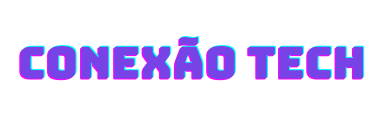Embarking on a writing journey requires not only creativity and dedication but also the right tools to enhance productivity, organization, and skill. From writing software to grammar checkers, the right resources can transform your workflow and improve the quality of your work. In this article, we’ll explore ten essential tools every beginner writer should consider using.
1. Word Processing Software
A reliable word processor is fundamental for any writer. Popular options include:
- Microsoft Word: Known for its extensive formatting options and compatibility.
- Google Docs: Ideal for collaboration and automatic saving to the cloud.
- LibreOffice: A free alternative for those seeking basic word processing features.
These tools allow you to draft, edit, and format your work effortlessly.
2. Grammarly
Grammarly is a powerful grammar and spell-checking tool that assists writers in improving their prose. Its key features include:
- Real-time Suggestions: Highlights errors as you type.
- Clarity and Engagement Scores: Helps ensure your writing is concise and compelling.
- Plagiarism Checker: Ensures originality, a must for professional writing.
Grammarly integrates with most platforms, making it an invaluable companion for any writer.
3. Scrivener
For writers tackling complex projects like novels, research papers, or screenplays, Scrivener is a game-changer. It offers:
- Organizational Tools: Keep notes, outlines, and drafts in one place.
- Customizable Layouts: Tailor your workspace to suit your project.
- Distraction-Free Writing Mode: Stay focused on your draft.
While it has a learning curve, Scrivener’s versatility is worth the investment.
4. Hemingway Editor
The Hemingway Editor is designed to make your writing bold and clear. Its features include:
- Highlighting complex sentences and passive voice.
- Suggesting simpler alternatives for improved readability.
- Providing a readability score to gauge how easily your content can be understood.
This tool is perfect for refining your style and ensuring your writing is accessible to a broad audience.
5. Notion
Notion is an all-in-one productivity app that helps you stay organized as a writer. You can use it for:
- Project Management: Track deadlines and progress.
- Note-Taking: Jot down ideas and research notes.
- Content Planning: Outline blog posts, chapters, or articles.
Its flexibility and customizability make it a favorite among creative professionals.
6. Evernote
Evernote is a dedicated note-taking app, perfect for writers who frequently brainstorm on the go. Its features include:
- Synchronization Across Devices: Access your notes anywhere.
- Multimedia Notes: Save text, images, audio clips, and even web links.
- Tagging and Searching: Organize your ideas effectively for easy retrieval.
Whether you’re jotting down a quick idea or saving detailed research, Evernote ensures nothing gets lost.
7. Thesaurus.com
A rich vocabulary is vital for engaging writing, and Thesaurus.com is an invaluable resource for:
- Finding synonyms to avoid repetition.
- Enhancing word variety for more expressive prose.
- Discovering antonyms for contrast.
Bookmarking this tool ensures you always have access to the right word for any situation.
8. Trello
Trello is a visual project management tool ideal for planning your writing schedule. Use it to:
- Organize Your Workflow: Create boards for each stage of your project.
- Set Deadlines: Keep track of submission dates.
- Collaborate with Others: Perfect for co-authoring or working with editors.
Its simple drag-and-drop interface makes it beginner-friendly and highly effective.
9. Calmly Writer
Distractions can hinder productivity, and Calmly Writer addresses this by providing a minimalist writing interface. Features include:
- Full-Screen Mode: Removes distractions to focus solely on writing.
- Dark Mode: Reduces eye strain during long writing sessions.
- Auto-Save Functionality: Prevents data loss, giving peace of mind.
For writers who crave simplicity, this tool is a must-have.
10. MindMeister
Writing often starts with brainstorming, and MindMeister helps you map out your ideas visually. Its benefits include:
- Creating Mind Maps: Organize thoughts in a clear, hierarchical structure.
- Collaborative Features: Work on maps with team members in real-time.
- Integration with Other Tools: Sync with apps like Google Drive for seamless workflow.
MindMeister is especially useful for outlining complex projects or brainstorming new ideas.
Equipping yourself with the right tools as a beginner writer can save time, reduce stress, and elevate the quality of your work. Whether you’re drafting a novel, writing blog posts, or managing multiple projects, these ten tools will support you every step of the way.
Remember, the best tool is the one that complements your personal workflow and enhances your productivity. Experiment with different options to find what works best for you.

I’m Mariana Tavares, creator of a blog dedicated to helping beginner writers with practical and valuable tips to develop their skills and achieve success in their careers.
